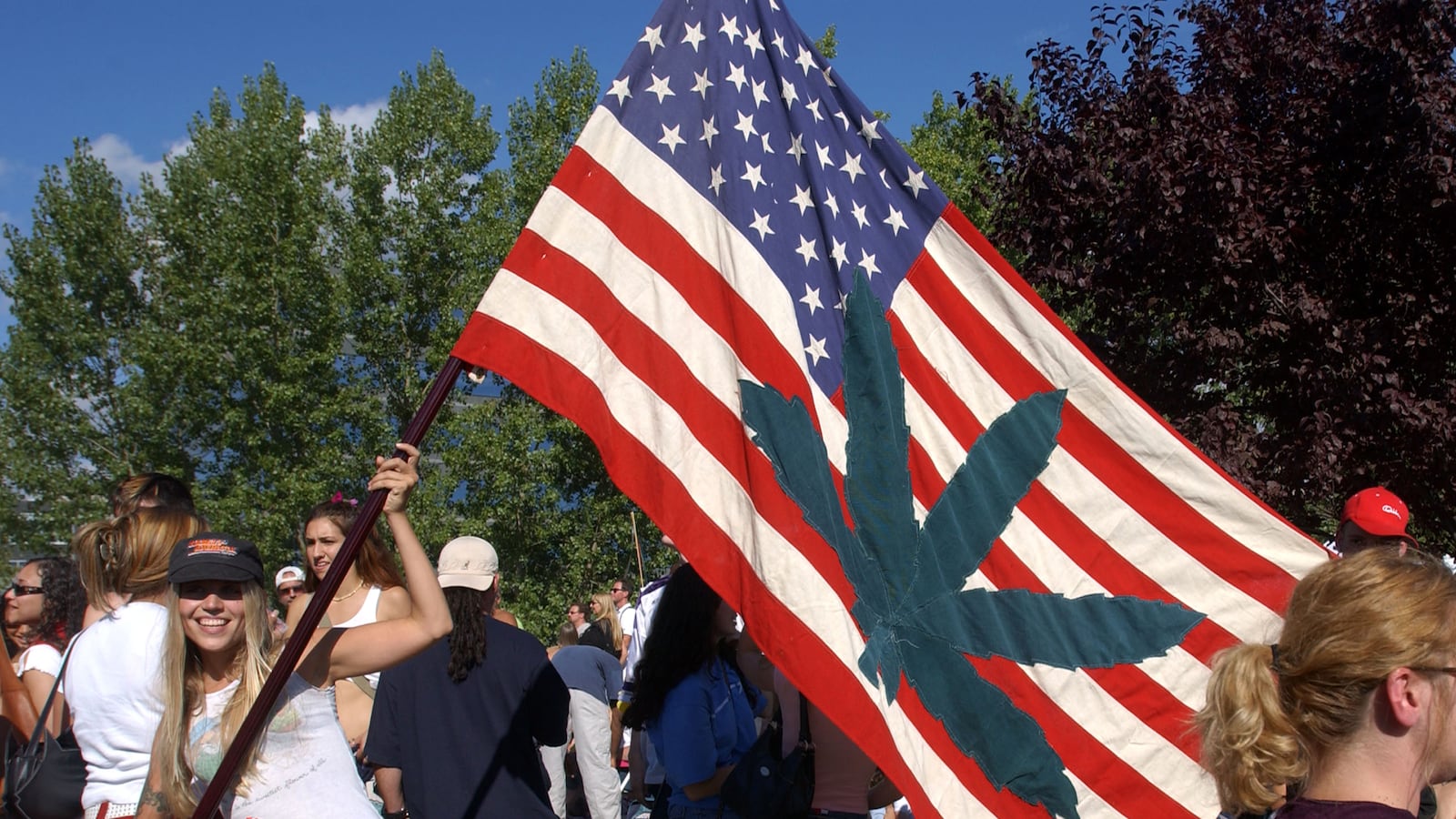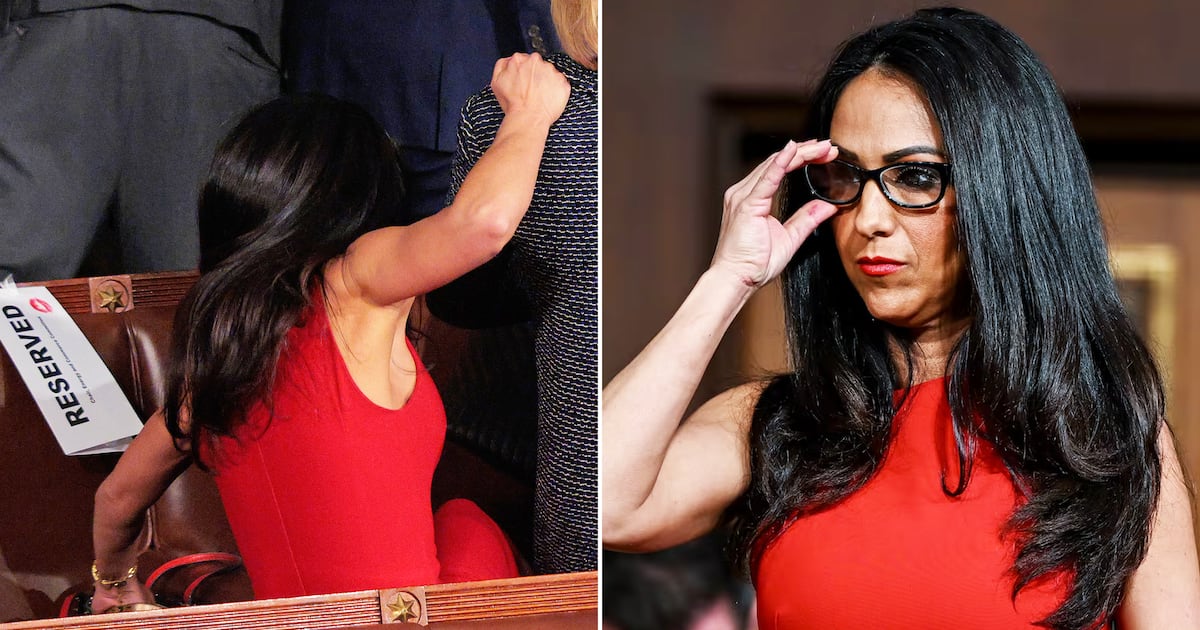Years from now, 2013 isn’t going to remembered as the year when Obamacare went down faster than a Clinton-era White House intern, President Rand Paul made a name for himself by filibustering against drone strikes and secret kill lists, or Miley Cyrus twerked onstage as sexily as a Rhesus monkey with electrodes strapped to its genitals.

No, 2013 is going to be remembered as the year the drug war died as a political issue. The headline of the latest Gallup Poll on the subject says it all: “For First Time, Americans Favor Legalizing Marijuana.” Fully 58 percent of respondents agreed that “the use of marijuana should be made legal.” Not decriminalized, medicalized, or any other weasel-worded synonym to keep the squares and the cops and the addiction-industry lobbyists from getting the vapors and reaching for a legal chill pill. Legalized. This year’s figure represents a massive, 10-point bounce from last year and an even longer, stranger trip from 1969, the first year Gallup popped the question, when just 12 percent said pot ought to be sold like beer, wine, and alcohol.
The only voters by age that still just say no are folks 65 years and older, and no matter how regularly they vote, they’re facing the harshest buzz kill of all, the one imposed by the conqueror worm. They will be replaced over time by cohorts of pot-friendly citizens. Despite the continuing presence of ardent drug warriors such as Joe Biden, who effectively created the drug czar’s office, Gallup finds fully 65 percent of Democrats say yes to legal pot. So do 62 percent of independents, the single-largest bloc of voters in the U.S. A shamefully low 35 percent of Republicans are in favor of ending marijuana prohibition, but they will either change their tune on this issue or fade away into obscurity, like a 1973 pot-laced concept album by the New Riders of the Purple Sage.
Who would have thought the war would end so quickly and without a final battle—only a mere 76 years after the feds first got the heebie-jeebies over reefer madness! The folks at Gallup point to the fact that Colorado and Washington state legalized recreational pot last year as a major contributing factor to the pro-legalization groundswell.
There’s more to it than just that, of course. All it took was annually arresting as many as thee-quarters of a million Americans for simple possession of weed and conducting 50,000 SWAT raids a year by poorly trained, armed-to-the-teeth cops who seem more likely to shoot your dog or bust into the wrong house as nab your friendly neighborhood drug kingpin. And an economic downturn that suddenly made the $50 billion we spend a year on direct costs for the drug war finally seem too steep a price (never mind the incalculable and disproportional toll paid by minority families and communities). Depressions and recessions—not to mention ballooning budget deficits and mounting national debt—really help make the case for limited government.
It helped, too, that California voters first passed a medical marijuana law in 1996 and the idea—approved by about 80 percent of Americans—has since spread to 19 more states and the District of Columbia. No real trouble has ensued (unless you are a chronic pain patient living in a non-medical marijuana state) and use rates among kids or anyone else haven’t jacked up. And it’s helped that 48 percent of Americans ages 12 and older have tried an “illicit drug” (the government’s preferred term) at least once in their lifetime, overwhelmingly without becoming addicted or even using the substance again. Then there’s the last three presidents of these United States, all of whom are known drug users. Indeed, Sen. Barack Obama even yukked it up publicly about how inhaling “was the point,” not long before setting a record for busting medical marijuana dispensaries as president.
For all these reasons and many more, the war on pot is over. A large majority of Americans favor legalizing it and that’s not going to change. No politician is going to ever again gain votes or win an election by talking tough about pot.
And make no mistake: There is no war on drugs without the war on pot, which is the only illegal drug that anyone uses with any frequency. According to the government’s own stats, 7.2 percent of Americans cop to having smoked pot in the past 30 days, an imperfect but rough measure of regular use. The 30-day-use figures for other illegal—sorry, illicit—drugs are almost too small to measure: 0.1 percent for heroin, 0.2 percent for crack, 0.2 percent for methamphetamine, 0.1 percent for LSD, 0.2 percent for ecstasy. The only other substances that even top one percent are “nonmedical use of psychotherapeutics,” a category that includes prescription painkillers such as Oxycontin and Vicodin and anti-anxiety drugs such as Xanax. Even when bundled together, just 2.6 percent of Americans misuse prescription drugs in a given month.
Who supports keeping the drug-war gulag open to punish the 0.1 percent of acid eaters left in America, or even the 2.6 percent of sad-sack pill addicts? Lord knows we are slow to wisdom, but we’ve finally realized that prohibition exacerbates all the ills it’s supposed to prevent and only makes substance abusers less likely to seek treatment (who wants to admit to being a criminal on top of a junky?). The only question left—and it’s not a small one, for sure—is the one Secretary of State John Kerry asked as a Vietnam protester: Who’s going to be the last man to die for this mistake?
As in so many other urgent situations, Barack Obama’s widely praised ability to whip up sweet-and-sticky word-clouds of rhetorical cotton candy has abandoned him. In late August, nearly a year after Colorado and Washington state voters overwhelmingly rejected federal marijuana prohibition and legalize cannabis at the state level, the Obama Justice Department finally issued vague guidelines that kinda-sorta said that the feds wouldn’t prosecute producers and consumers of medical and recreational pot in states that had legalized such activities.
Unless, that is, the feds felt they should. As Tom Angell, the head of Marijuana Majority, told my Reason colleague Jacob Sullum, “My optimism is tempered by the fact that despite the Justice Department’s 2009 announcement that it shouldn’t be a priority to bust medical marijuana providers operating in accordance with state law, this administration went on to close down more state-legal marijuana businesses in one term than the Bush administration did in two terms.”
But who knows? As he struggles in his second term to fashion an unambiguous, unambivalent legacy, perhaps Obama will embrace the end of the drug war as his signature achievement, one that will surely outlive any political accomplishment of the 21st century so far.






